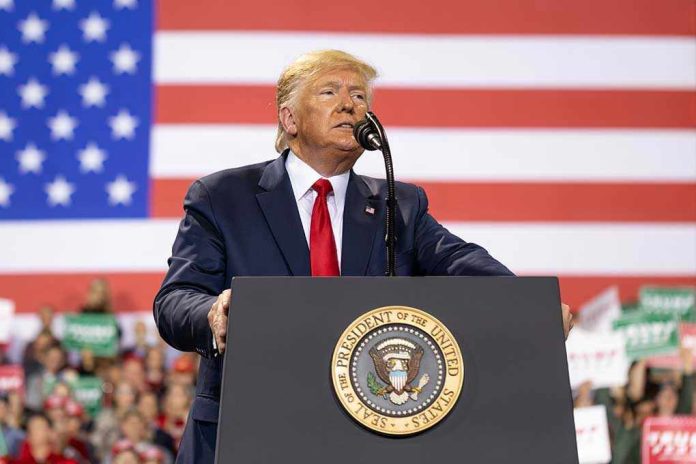
President Trump’s unprecedented threat to deploy American forces against Nigeria over religious persecution marks the first time a U.S. president has ordered the Pentagon to prepare for unilateral military action in West Africa based solely on protecting Christian minorities.
Story Snapshot
- Trump ordered Pentagon preparations for potential military strikes in Nigeria citing Christian persecution by Islamic extremists
- All U.S. aid to Nigeria immediately suspended as diplomatic pressure escalates
- Nigerian government denies allegations and condemns threats as “unfounded and provocative”
- No troops deployed yet, but Pentagon confirms “reviewing options” for intervention
- Religious freedom advocates support focus but question military approach effectiveness
Trump’s War Warning Shocks Nigeria
Trump’s November 2nd social media announcement bypassed traditional diplomatic channels entirely. He instructed what he called the “Department of War” to prepare for action against Nigeria, threatening to go in “guns a blazing” if Christian killings continued. The president’s language was deliberately provocative, promising a “fast, vicious, and sweet” military response that would “wipe out” Islamic terrorists.
Nigerian officials immediately pushed back against Trump’s characterization. Their government issued formal denials of systematic persecution while condemning the threats as inflammatory. The response highlighted Nigeria’s position as a sovereign nation unwilling to accept foreign military intervention, regardless of internal security challenges with groups like Boko Haram and ISWAP.
Pentagon Caught Between Orders and Caution
Military planners now face the complex task of preparing contingency operations for a country where the U.S. has never conducted large-scale combat missions. The Pentagon confirmed it was “reviewing options” but emphasized no deployment orders had been issued. Defense officials understand the significant risks of unilateral intervention in Nigeria’s complex religious and ethnic landscape.
Previous American involvement in Nigeria focused on training, intelligence sharing, and limited drone support against Boko Haram. A full military intervention would represent a dramatic escalation requiring substantial resources and risking unintended consequences. The Pentagon’s measured response suggests institutional wariness about Trump’s aggressive timeline and rhetoric.
Aid Suspension Hits Vulnerable Populations
Trump’s immediate halt to all U.S. assistance affects humanitarian programs supporting refugees, internally displaced persons, and development initiatives. The aid suspension serves as diplomatic leverage while demonstrating serious intent behind military threats. However, cutting aid primarily harms vulnerable populations rather than changing government behavior or stopping extremist violence.
Religious freedom experts support Trump’s focus on Christian persecution but question whether military action addresses root causes. The U.S. Commission on International Religious Freedom has documented systematic violence against both Christians and Muslims in Nigeria. Their reports emphasize the need for comprehensive approaches addressing governance, economic opportunity, and security sector reform rather than external military intervention.
Regional Stakes and Unintended Consequences
Nigeria’s status as Africa’s most populous nation and regional power makes intervention particularly risky. Military action could destabilize West Africa while providing propaganda victories for extremist groups who would frame American involvement as a religious crusade. Previous U.S. interventions in Somalia and Libya demonstrate how good intentions can produce chaos and increased terrorism.
Trump’s approach reflects his preference for unilateral action and religious freedom priorities that resonate with conservative voters. However, the complexity of Nigerian politics, where religious identity intersects with ethnic and regional tensions, makes simple military solutions potentially counterproductive. Success requires understanding local dynamics that external force cannot easily address.
Sources:
What to Know About Trump’s Threat Against Nigeria



